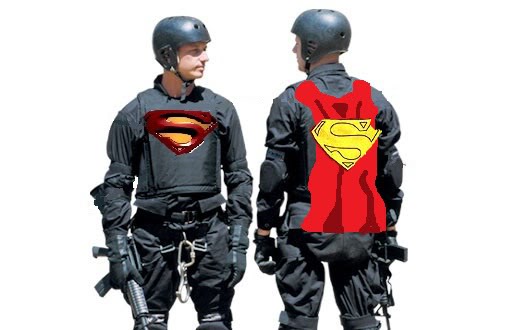ERU Emergency response unit
These guys were like a super SWAT type police unit.
The shirt is a U.S. Issued 6-color, the patch is velcro .


These guys were like a super SWAT type police unit.
The shirt is a U.S. Issued 6-color, the patch is velcro .



 ERU Emergency response unit
ERU Emergency response unit


 Re: ERU Emergency response unit
Re: ERU Emergency response unit

 Re: ERU Emergency response unit
Re: ERU Emergency response unit
 Re: ERU Emergency response unit
Re: ERU Emergency response unit
 Re: ERU Emergency response unit
Re: ERU Emergency response unitBy Sandra Jontz, Stars and Stripes
Mideast edition, Thursday, April 14, 2005
Sandra Jontz / S&S
U.S. Army Col. Ted Westhusing, senior advisor for the Counter Terrorism Special Operations training program, praises Iraqi members of the Emergency Response Unit for a job well done Monday after the teams stormed a training building and shot targets depicting hostage takers without shooting the hostages or each other.
Sandra Jontz / S&S
Members of the SWAT team from Karbala pull suspected “terrorists” from a commercial bus during a training exercise Monday at Camp Dublin, near the Baghdad International Airport.
Sandra Jontz / S&S
An assessment of targets after members of the Iraqi Emergency Response Unit stormed a training building showed that a team member accurately pumped bullets into the head of a terrorist, and left unscathed the hostage.
CAMP DUBLIN, Iraq — He was a soccer star in a previous life, the one untouched by war. He was famous among his fellow Iraqis, as soccer players usually were.
But now, he lives a life in obscurity — his face hidden behind a black ski mask when on the job. It’s too risky for the 24-year-old soccer star-turned-cop to reveal to the world his life as a member of the Emergency Response Unit, an elite part of the rebuilding Iraqi police force.
He prefers his new life.
“My jobs are almost the same. In soccer, we made goals. Now I make goals. Goals by capturing terrorists,” he said Monday during a training break at Camp Dublin, near Baghdad International Airport.
Last summer, the U.S. military’s Civilian Police Assistance Training Team began rigorous training programs to establish specialized police teams in three areas: Special Weapons and Tactics (SWAT), emergency response, and dignitary protection, similar to functions carried out by the U.S. Secret service. The training team also is responsible for organizing, training, equipping and mentoring the entire Iraqi police force.
The specialized teams being formed are unlike anything the Iraqi police force has seen in the past, said an Iraqi company commander. Because of the volatile security situation and the targeting of Iraqi police forces by insurgents, he and other members interviewed asked that their names not be published.
“We never had this kind of organization, this kind of specialized training,” the lead captain said through a translator. “They are so excited to come and train to be operators.”
The rigorous course translates into a high dropout rate, however, with only about 30 percent of the candidates graduating after eight weeks of basic and advanced courses, U.S. Army Capt. Ron Lanzo said.
The ERU will serve as Iraq’s national high-end specialized police force, trained to carry out missions such as hostage takeovers or high-risk search and arrest missions, said U.S. Army Col. Ted Westhusing, senior adviser for the counterterrorism special operations training program under CPATT.
The ERU now comprises three companies of 60 members each. The goal by June 2006 is to build a regimental-size unit and add support, training and headquarters companies, Westhusing said.
Given the short time in which the units have trained, they’ve performed remarkably well during real missions, said trainer John Howard, a former member of Britain’s hostage rescue team.
During a deployment to Mosul last month, the team helped the U.S. Army in various missions that involved the freeing of hostages. The Iraqis also captured two high-value targets following an attack on the 25th Infantry Division that resulted in U.S. casualties, Howard said.
In another mission, they captured a suspect charged with the kidnapping and beheading of one of the police team members.
CPATT’s goal is to train a total of 20 SWAT teams of 27 members each, and placing one team in each of Iraq’s 18 provinces. The additional two could be placed in provinces with large cities, such as Baghdad, Lanzo said. Nine teams have graduated so far.
“We get a very high level of training from very good instructors and we develop day by day, building our ability, step by step,” said a 23-year-old member of the SWAT team from Karbala.
“We are like the lion of Iraq, very brave.”
